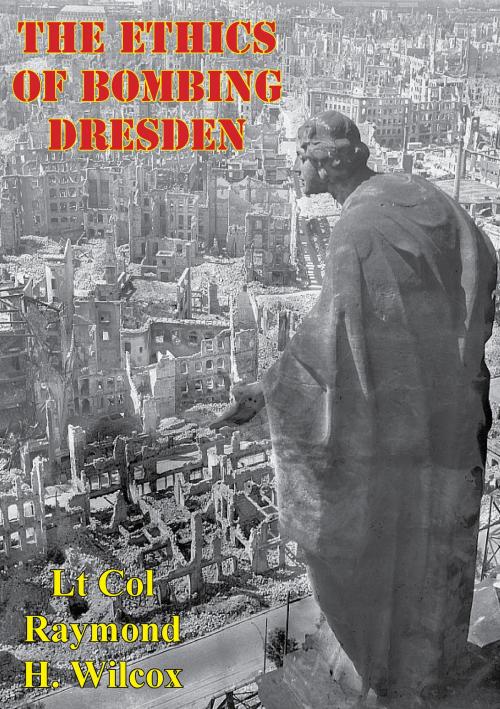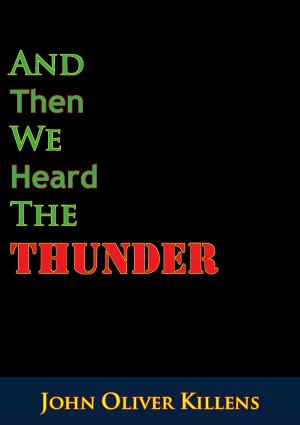The Ethics Of Bombing Dresden
Nonfiction, History, Germany, European General, Military, United States| Author: | Lt Col Raymond H. Wilcox | ISBN: | 9781782897521 |
| Publisher: | Lucknow Books | Publication: | August 15, 2014 |
| Imprint: | Lucknow Books | Language: | English |
| Author: | Lt Col Raymond H. Wilcox |
| ISBN: | 9781782897521 |
| Publisher: | Lucknow Books |
| Publication: | August 15, 2014 |
| Imprint: | Lucknow Books |
| Language: | English |
This study describes the events, doctrine, and technical developments of World War II (WWII) that led to the destruction by area bombing of the city of Dresden and the deaths of 135,000 of its citizens. Prior to our entry into WWII our bombing strategy was to employ large numbers of high altitude bombers with heavy defensive firepower, flying in formation, using precision daylight bombardment. This ethical bombing technique was observed early on in WWII, but at some point the ethic changed. Why? Was it a change in the ethics of the commander or country, or was it due to a technological push through the development of on-board radar? This analysis will show that although no specific order or directive specified the destruction of Dresden, those in charge had tacitly endorsed it. History shows us that because of this change, the face of war in Europe also changed. To this day, the firestorm of Dresden remains one of the deadliest and ethically most problematic raids of WWII.
This study describes the events, doctrine, and technical developments of World War II (WWII) that led to the destruction by area bombing of the city of Dresden and the deaths of 135,000 of its citizens. Prior to our entry into WWII our bombing strategy was to employ large numbers of high altitude bombers with heavy defensive firepower, flying in formation, using precision daylight bombardment. This ethical bombing technique was observed early on in WWII, but at some point the ethic changed. Why? Was it a change in the ethics of the commander or country, or was it due to a technological push through the development of on-board radar? This analysis will show that although no specific order or directive specified the destruction of Dresden, those in charge had tacitly endorsed it. History shows us that because of this change, the face of war in Europe also changed. To this day, the firestorm of Dresden remains one of the deadliest and ethically most problematic raids of WWII.

![Cover of the book Ambulance No. 10. Personal Letters Of A Driver At The Front [Illustrated Edition] by Lt Col Raymond H. Wilcox](https://www.kuoky.com/images/2014/june/300x300/9781782891772-Oidp_300x.jpg)

![Cover of the book Airborne Assault On Holland [Illustrated Edition] by Lt Col Raymond H. Wilcox](https://www.kuoky.com/images/2014/august/300x300/9781782894636-4uOC_300x.jpg)

![Cover of the book 21 Army Group: Normandy To The Baltic [Illustrated Edition] by Lt Col Raymond H. Wilcox](https://www.kuoky.com/images/2015/november/300x300/9781782897613-Vvwo_300x.jpg)

![Cover of the book TO BIZERTE WITH THE II CORPS - 23 April - 13 May 1943 [Illustrated Edition] by Lt Col Raymond H. Wilcox](https://www.kuoky.com/images/2014/august/300x300/9781782894582-rGRQ_300x.jpg)




![Cover of the book With The Twenty-Ninth Division In Gallipoli, A Chaplain's Experiences. [Illustrated Edition] by Lt Col Raymond H. Wilcox](https://www.kuoky.com/images/2013/january/300x300/9781782891000-ek7d_300x.jpg)
![Cover of the book Tragedy At Honda [Illustrated Edition] by Lt Col Raymond H. Wilcox](https://www.kuoky.com/images/2015/november/300x300/9781786255440-qRl4_300x.jpg)

